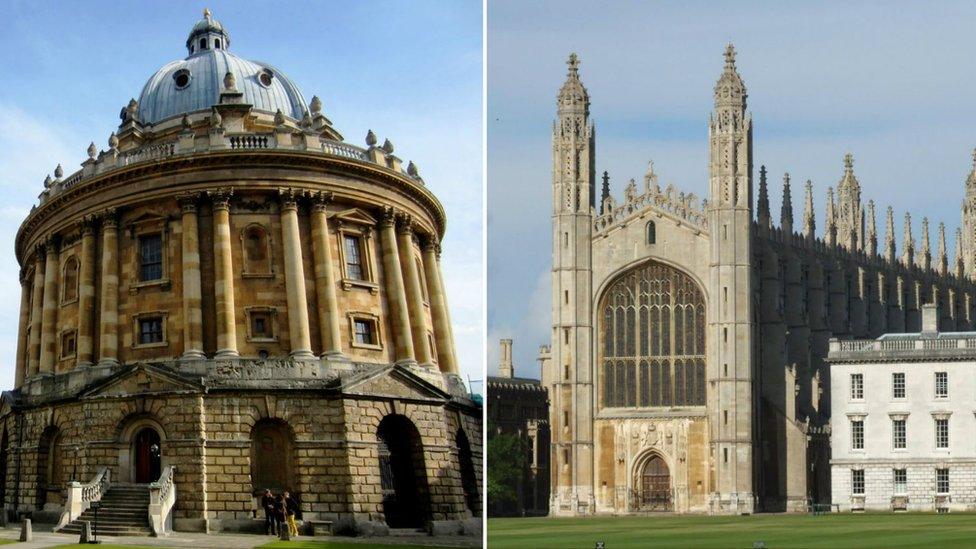Oxford-Cambridge Expressway 'could devastate wildlife'
- Published
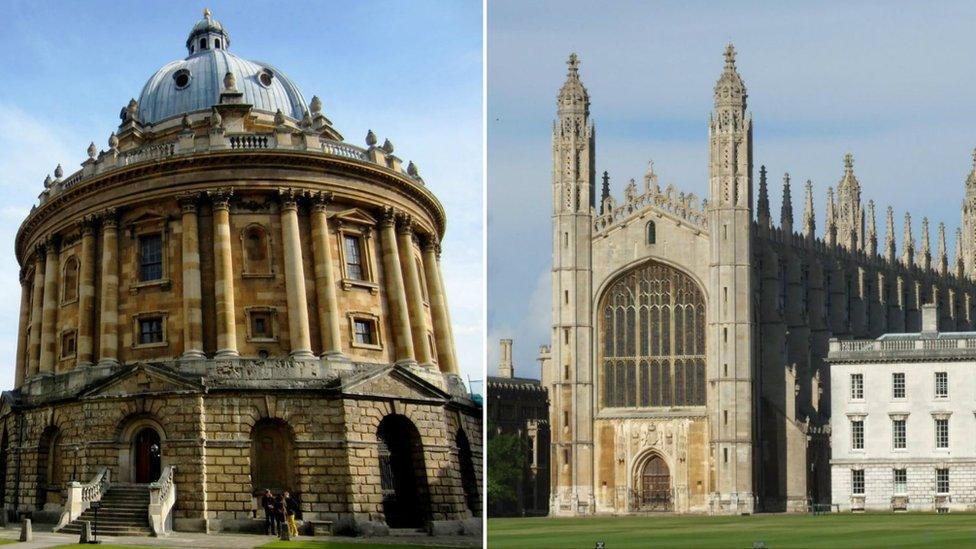
It is estimated it could cost up to £3.5bn to link Oxford and Cambridge with an expressway
A proposed expressway linking Oxford and Cambridge would have "potentially devastating impacts" on wildlife, a charity has warned.
The Berks, Bucks & Oxon Wildlife Trust (BBOWT) wants a public consultation on the route it could take so the possible effect can be scrutinised.
It said all three of the proposed corridors had the "potential" to severely harm the natural environment.
Highways England has been approached by the BBC for comment.
The plan to build an Oxford to Cambridge Expressway has been included in the Department for Transport's post-2020 Road Investment Strategy, external.
It could connect sections of the A34, A421, A428 and A1, which would be upgraded to expressway standard, to complete a link between the M4 and A14/M11.
There is no direct dual-carriageway route between Oxford, Milton Keynes, Bedford and Cambridge and the National Infrastructure Commission has said it would bring "substantial national benefits".
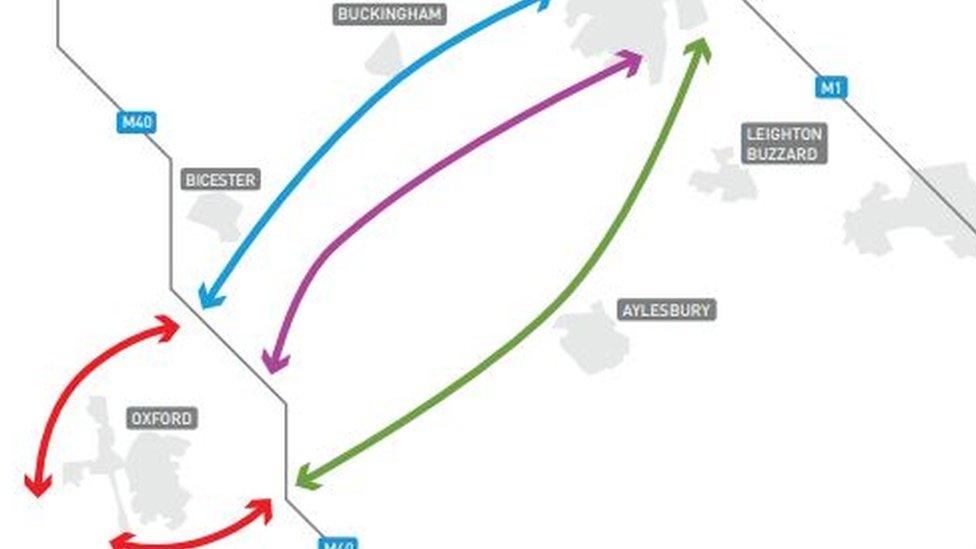
Three possible corridors have been shortlisted for the expressway
However, BBOWT fears the expressway could damage areas of Cothill Fen, Oxford Meadows, and the Otmoor Basin, in Oxfordshire, along with the Upper Ray Valley and Bernwood Forest in Buckinghamshire.
It said the areas included ancient woodlands and hedgerows along with rare fens and flood-rich floodplain meadows.
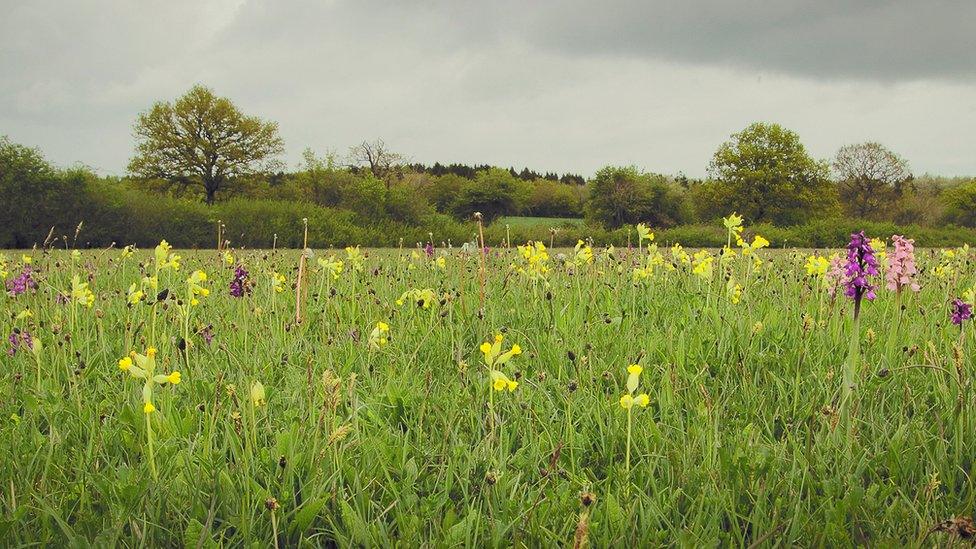
BBOWT said rare meadows could be damaged by the expressway
The trust has called for Highways England to carry out a strategic environment assessment to enable a full public consultation to take place.
Neil Clennell, from BBOWT, said the opportunity to fully scrutinise the effects of all possible routes would be lost if it was not undertaken before a preferred corridor was chosen.
BBOWT is the latest wildlife group to raise misgivings about the expressway plan after the RSPB voiced concerns in April.
- Published13 April 2018
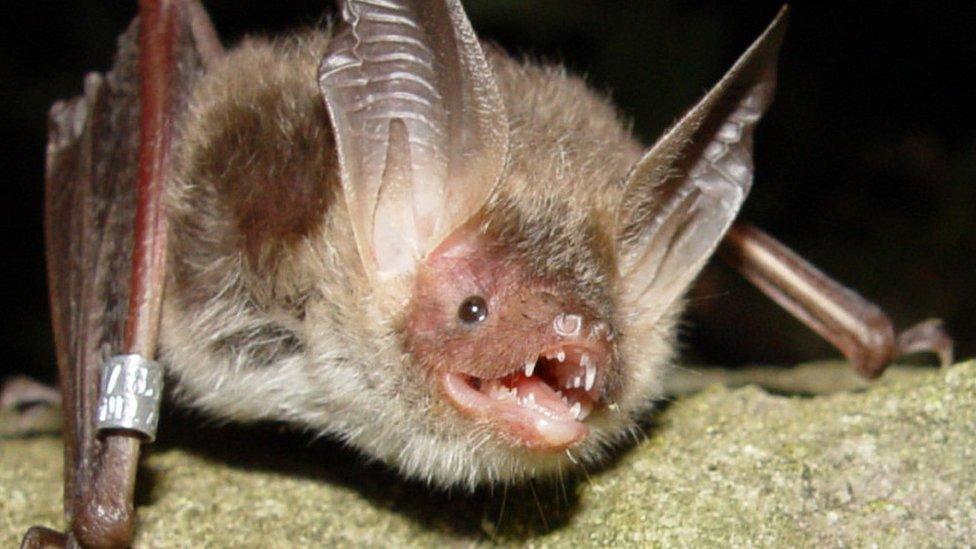
- Published30 November 2016
